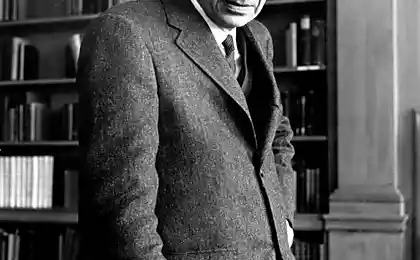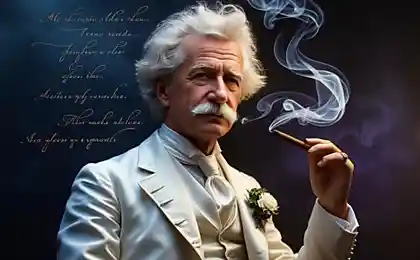483
5 phrases, spoken at the right time
In case of urgency — to show wit
Articulate and diverse it is, perhaps, little that truly sets us apart from all the other species that inhabit our planet, however, if you want to show off linguistic skills in a situation that is not favorable, the animals of the species homo sapiens is not always able to find the appropriate words and phrases. When sitting in a trench, risking a stray bullet, or say, wait in the tent a snow storm, not knowing if you will survive until graduation, to occupy your brain to build eloquent phrases unforgivable, because you can use it with much greater benefit. The heroes of this collection — the most wasteful people in the world, because they afford such a luxury, but a luxury of human communication, as would say Antoine de Saint-exupéry — the only luxury in the world.
1. Witty courage Lawrence Oates
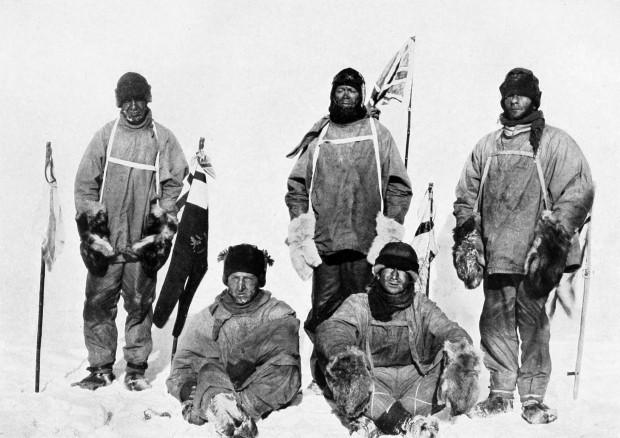
Robert Scott Expedition
In early 1912, the year Robert Scott expedition, which was British army captain Lawrence Oates reached the South pole, but there are courageous explorers of Antarctica got a nasty surprise — at the pole they found lots of human and dog footprints, and a note, which indicated that the group led by Norwegian Roald Amundsen visited the southernmost point of the planet to 34 days before the British.
On the way back to the main Parking lot of the travelers had a hard time — the weather deteriorated, provisions were running out, in addition, one of the explorers died from received in a fall injuries. Tired and frostbitten explorers slowly walked through endless ice desert, hoping to reach the base before you die. Lawrence Oates, who for an old injured one leg was slightly shorter than the other, significantly inhibited the promotion of the detachment. Realizing that his slow reduces the chances of comrades to survive on no, the OTC asked me to leave him, but other members of the group refused.
On March 17, when travelers waited out the Blizzard Scott wrote in his diary that OTS barefoot went out of the tent with the words: "Just going out for some air and some time to return." Needless to say that the researchers did not wait for the return of the captain. Unfortunately, the other members of the Arctic campaign not survived OTS — 12 days everyone, including Scott, died in the Blizzard, although Parking was only 17 km... Later their bodies were found, while the body of Oates was never found. Near the place where he died, set the stone pyramid, with the inscription: "Nearby died a very gallant gentleman, captain L. E. OTS of Inniskilling Dragoon regiment. In March 1912, on his return journey from the pole he went willingly to death in the snow storm to try to rescue their comrades caught up in the trouble."
2. Daniel Daley — people and destroyer
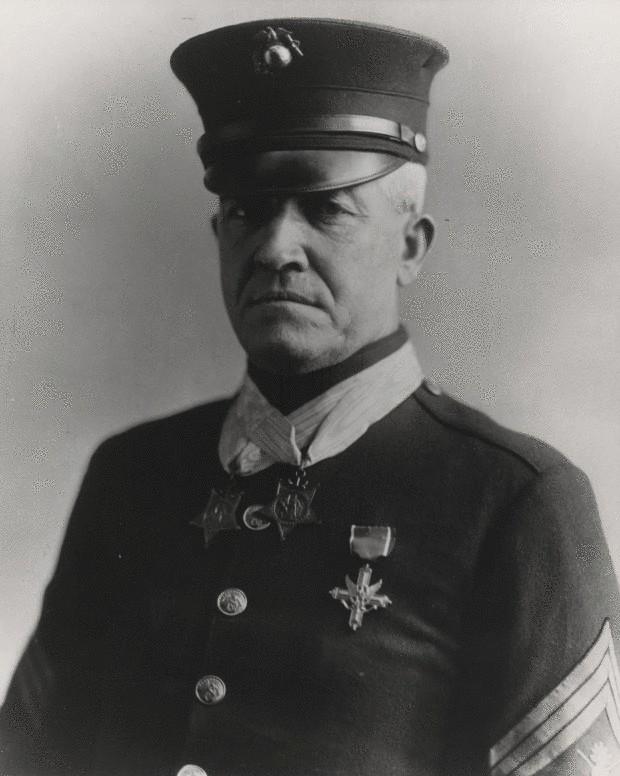
Daniel Daley
If you saw Daniel Daly during his work at the Bank, you probably wouldn't believe that a small man behind a Desk littered with papers and office paper clips — one of the bravest officers of the marine corps of the United States.
Daly entered military service before the start of the First World war and in 1917 year, when as part of the expeditionary force of American troops sent to France, Daniel had two Medals of Honor (the highest military award of USA). First he received for heroic defense of the American Embassy in China during the Boxer rebellion (also known as the boxer rebellion) Daly alone was able to fend off more than five hundred angry Chinese. Second Medal of Honor he was awarded for his successful defense of American positions during one of the rebellions in Haiti.
In 1917, the year a detachment of Marines under the command of Daley came into the fight with the Germans near Paris — the battle went down in history as the battle of Bello wood. The odds were not in favor of the Americans and after a few skirmishes, the squad was surrounded twice superior forces of the enemy. Sitting in the trenches and listening to the whistling bursts of German machine gun, Daley quickly realized that the only way to destroy the enemy's numerical advantage to go on the attack.
Cried: "Guys, for God's sake, forward! Do you want to live forever?", Daily under heavy fire led his Marines directly into enemy positions. On 26 June the Supreme command of the armed forces of the United States received a telegram: "Forests near Bello wood completely under the control of the marine corps of the United States."
After the First world war, Daniel Daly resigned and got a job in a Bank. He lived a long and happy life, and in 1942, the year his name was even called the destroyer, but unfortunately, Daley was unable to attend the ceremony of launching the ship on the water — hero had died five years before, in 1937 and was buried with all relying military honours.
3. War is not for women?
In 1912, the year a young Scion of one of the Serbian families called to serve in the army — the country needed fresh forces to participate in the war, which later became known as the First Balkan. Sister rookie, 24-year-old Milanca Savich, disguised as a man enlisted in the army and after his brother went to the front. She pretty much able to hide their sexual identity, but during the Second Balkan war, the brave woman received a severe shrapnel wound that required surgery and her secret was revealed.
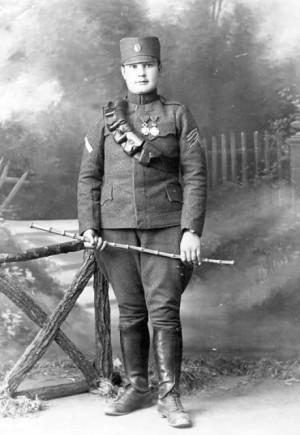
"Ordinary Savic" was summoned to the commander, who of course, thoroughly "told off" Milanku, but without the seemingly inevitable trip home and a serious disciplinary punishment — during the fighting, Milunka proved themselves brave and efficient soldier. She was offered to be transferred to the service in the hospital, but this turn did not suit Milunka insisted that he wants to fight for his country on the front lines. The officer promised to think over her words and give an answer the next day, what Savich stood at attention and replied, "I'll wait."
Until the next day did not have — after an hour of deliberation, the commander decided to send her back to the infantry. The woman passed the Second Balkan war and fought for their country on the battlefields of the First World, surprising colleagues unparalleled courage and reckless courage. Savic has won many state awards Serbia, France, great Britain and Russia, and after the war married and started raising children. After some time forgot about it — who cares about the heroes of the last war, when the nose new? The last years of his life, narednik (military rank corresponding to a Sergeant) Savich spent in poverty and obscurity, she died in 1973-m to year, at the age of 84 years.
4. Unwanted child of Robert Oppenheimer
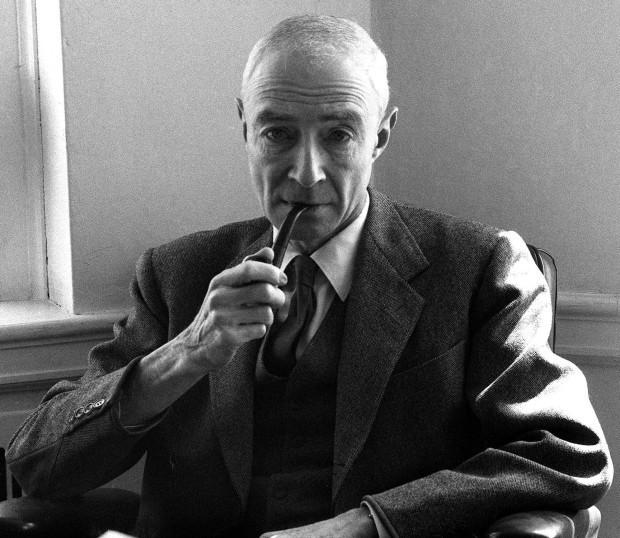
Robert Oppenheimer
"I am death, destroyer of worlds" — such a high-sounding phrase would be awesome for any sci-Fi movie, but unfortunately, the person who uttered it was not a movie writer and I meant it, speaking of himself these terrible words.
The exceptional research by American physicist Robert Oppenheimer is known as one of the greatest scientists of XX-th century, but also they made his name forever cursed by mankind. Oppenheimer was engaged in studying black holes, quantum electrodynamics, spectroscopy and many other important problems in physics, but the most fame he received in the course of work on the so-called Manhattan project — a program to create nuclear weapons.
As you know, the United States in 1945, the year used is developed with the direct participation of Oppenheimer atomic bomb against the civilian population of the Japanese cities of Hiroshima and Nagasaki. Years later, in the 1960s, the scientist told about his feelings during the observation of the first nuclear test: "I remembered the line from the Holy book of Hindus "Bhagavad-Gita": I am become death, the destroyer of worlds". Critically, Mr. Oppenheimer, but it's true.
5. Brevity is the soul of a Spartan
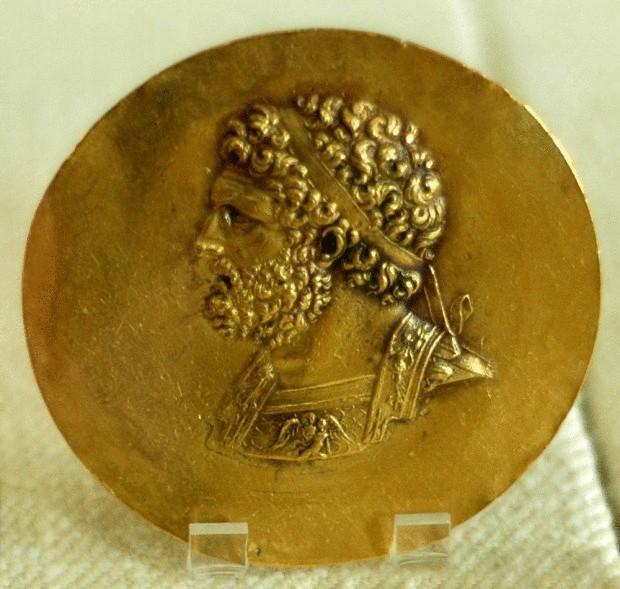
Philip II
War of conquest, through which Alexander the great became the sole ruler of a vast Empire, was started by his father, Philip II. Father of genius managed to conquer all the city-States of Ancient Greece, except one, Sparta. The people of Sparta was violent — they raised their children strictly, not to say violently, making the boys grew bold and decisive, and the glory of the Spartan warriors resounded throughout Greece and far beyond its borders.
In 346, the year BC, Philip again was going to go to war against the remnants of the Greeks and to intimidate the Spartans, which in his opinion was the only force capable of resisting the Macedonian armed forces, the king sent them the following message: "I conquered all of Greece, I have the best army in the world. Give up, because if I take the Sparta by force, if I break them gates when I get through with her rams the wall, then ruthlessly destroy the entire population and razed the city to the ground!". The answer of the Spartans was very brief (from the Greek region of Laconia, whose capital was Sparta): "If". After thinking about the message that Philip had abandoned his plan and never tried to attack Sparta, his son Alexander in his campaigns also avoided the side Laconia
источник:publy.ru
Source: /users/1080
Articulate and diverse it is, perhaps, little that truly sets us apart from all the other species that inhabit our planet, however, if you want to show off linguistic skills in a situation that is not favorable, the animals of the species homo sapiens is not always able to find the appropriate words and phrases. When sitting in a trench, risking a stray bullet, or say, wait in the tent a snow storm, not knowing if you will survive until graduation, to occupy your brain to build eloquent phrases unforgivable, because you can use it with much greater benefit. The heroes of this collection — the most wasteful people in the world, because they afford such a luxury, but a luxury of human communication, as would say Antoine de Saint-exupéry — the only luxury in the world.
1. Witty courage Lawrence Oates

Robert Scott Expedition
In early 1912, the year Robert Scott expedition, which was British army captain Lawrence Oates reached the South pole, but there are courageous explorers of Antarctica got a nasty surprise — at the pole they found lots of human and dog footprints, and a note, which indicated that the group led by Norwegian Roald Amundsen visited the southernmost point of the planet to 34 days before the British.
On the way back to the main Parking lot of the travelers had a hard time — the weather deteriorated, provisions were running out, in addition, one of the explorers died from received in a fall injuries. Tired and frostbitten explorers slowly walked through endless ice desert, hoping to reach the base before you die. Lawrence Oates, who for an old injured one leg was slightly shorter than the other, significantly inhibited the promotion of the detachment. Realizing that his slow reduces the chances of comrades to survive on no, the OTC asked me to leave him, but other members of the group refused.
On March 17, when travelers waited out the Blizzard Scott wrote in his diary that OTS barefoot went out of the tent with the words: "Just going out for some air and some time to return." Needless to say that the researchers did not wait for the return of the captain. Unfortunately, the other members of the Arctic campaign not survived OTS — 12 days everyone, including Scott, died in the Blizzard, although Parking was only 17 km... Later their bodies were found, while the body of Oates was never found. Near the place where he died, set the stone pyramid, with the inscription: "Nearby died a very gallant gentleman, captain L. E. OTS of Inniskilling Dragoon regiment. In March 1912, on his return journey from the pole he went willingly to death in the snow storm to try to rescue their comrades caught up in the trouble."
2. Daniel Daley — people and destroyer

Daniel Daley
If you saw Daniel Daly during his work at the Bank, you probably wouldn't believe that a small man behind a Desk littered with papers and office paper clips — one of the bravest officers of the marine corps of the United States.
Daly entered military service before the start of the First World war and in 1917 year, when as part of the expeditionary force of American troops sent to France, Daniel had two Medals of Honor (the highest military award of USA). First he received for heroic defense of the American Embassy in China during the Boxer rebellion (also known as the boxer rebellion) Daly alone was able to fend off more than five hundred angry Chinese. Second Medal of Honor he was awarded for his successful defense of American positions during one of the rebellions in Haiti.
In 1917, the year a detachment of Marines under the command of Daley came into the fight with the Germans near Paris — the battle went down in history as the battle of Bello wood. The odds were not in favor of the Americans and after a few skirmishes, the squad was surrounded twice superior forces of the enemy. Sitting in the trenches and listening to the whistling bursts of German machine gun, Daley quickly realized that the only way to destroy the enemy's numerical advantage to go on the attack.
Cried: "Guys, for God's sake, forward! Do you want to live forever?", Daily under heavy fire led his Marines directly into enemy positions. On 26 June the Supreme command of the armed forces of the United States received a telegram: "Forests near Bello wood completely under the control of the marine corps of the United States."
After the First world war, Daniel Daly resigned and got a job in a Bank. He lived a long and happy life, and in 1942, the year his name was even called the destroyer, but unfortunately, Daley was unable to attend the ceremony of launching the ship on the water — hero had died five years before, in 1937 and was buried with all relying military honours.
3. War is not for women?
In 1912, the year a young Scion of one of the Serbian families called to serve in the army — the country needed fresh forces to participate in the war, which later became known as the First Balkan. Sister rookie, 24-year-old Milanca Savich, disguised as a man enlisted in the army and after his brother went to the front. She pretty much able to hide their sexual identity, but during the Second Balkan war, the brave woman received a severe shrapnel wound that required surgery and her secret was revealed.

"Ordinary Savic" was summoned to the commander, who of course, thoroughly "told off" Milanku, but without the seemingly inevitable trip home and a serious disciplinary punishment — during the fighting, Milunka proved themselves brave and efficient soldier. She was offered to be transferred to the service in the hospital, but this turn did not suit Milunka insisted that he wants to fight for his country on the front lines. The officer promised to think over her words and give an answer the next day, what Savich stood at attention and replied, "I'll wait."
Until the next day did not have — after an hour of deliberation, the commander decided to send her back to the infantry. The woman passed the Second Balkan war and fought for their country on the battlefields of the First World, surprising colleagues unparalleled courage and reckless courage. Savic has won many state awards Serbia, France, great Britain and Russia, and after the war married and started raising children. After some time forgot about it — who cares about the heroes of the last war, when the nose new? The last years of his life, narednik (military rank corresponding to a Sergeant) Savich spent in poverty and obscurity, she died in 1973-m to year, at the age of 84 years.
4. Unwanted child of Robert Oppenheimer

Robert Oppenheimer
"I am death, destroyer of worlds" — such a high-sounding phrase would be awesome for any sci-Fi movie, but unfortunately, the person who uttered it was not a movie writer and I meant it, speaking of himself these terrible words.
The exceptional research by American physicist Robert Oppenheimer is known as one of the greatest scientists of XX-th century, but also they made his name forever cursed by mankind. Oppenheimer was engaged in studying black holes, quantum electrodynamics, spectroscopy and many other important problems in physics, but the most fame he received in the course of work on the so-called Manhattan project — a program to create nuclear weapons.
As you know, the United States in 1945, the year used is developed with the direct participation of Oppenheimer atomic bomb against the civilian population of the Japanese cities of Hiroshima and Nagasaki. Years later, in the 1960s, the scientist told about his feelings during the observation of the first nuclear test: "I remembered the line from the Holy book of Hindus "Bhagavad-Gita": I am become death, the destroyer of worlds". Critically, Mr. Oppenheimer, but it's true.
5. Brevity is the soul of a Spartan

Philip II
War of conquest, through which Alexander the great became the sole ruler of a vast Empire, was started by his father, Philip II. Father of genius managed to conquer all the city-States of Ancient Greece, except one, Sparta. The people of Sparta was violent — they raised their children strictly, not to say violently, making the boys grew bold and decisive, and the glory of the Spartan warriors resounded throughout Greece and far beyond its borders.
In 346, the year BC, Philip again was going to go to war against the remnants of the Greeks and to intimidate the Spartans, which in his opinion was the only force capable of resisting the Macedonian armed forces, the king sent them the following message: "I conquered all of Greece, I have the best army in the world. Give up, because if I take the Sparta by force, if I break them gates when I get through with her rams the wall, then ruthlessly destroy the entire population and razed the city to the ground!". The answer of the Spartans was very brief (from the Greek region of Laconia, whose capital was Sparta): "If". After thinking about the message that Philip had abandoned his plan and never tried to attack Sparta, his son Alexander in his campaigns also avoided the side Laconia
источник:publy.ru
Source: /users/1080
